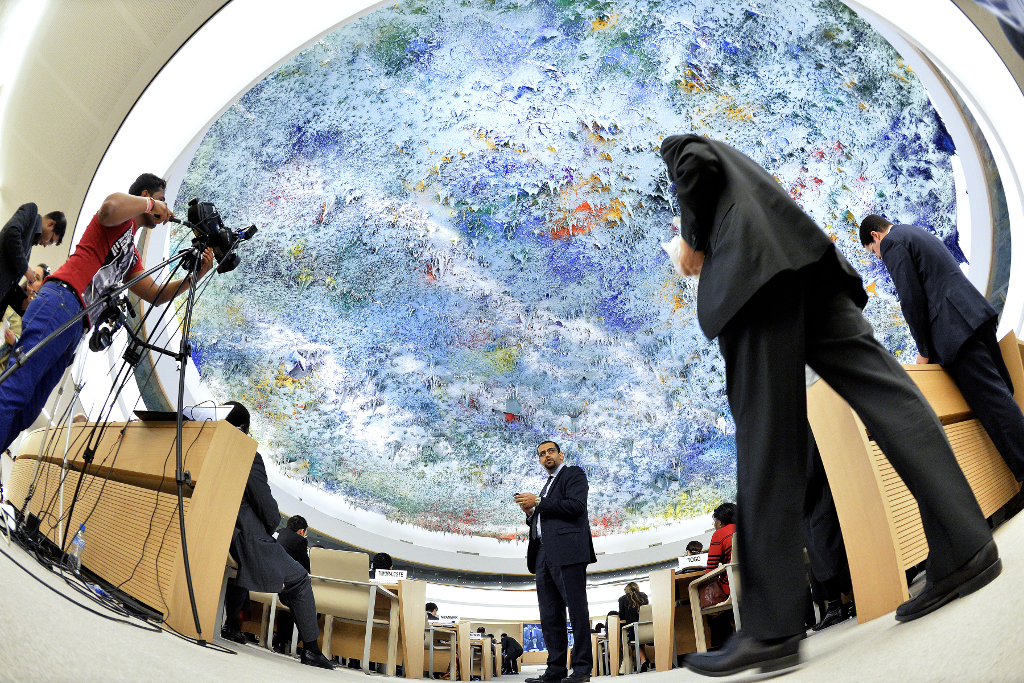Fundamental points for the consolidation of a free civil society
See the suggestions submitted by Conectas to the Office of the UN Rapporteur for the promotion and protection of human rights and fundamental freedoms while countering terrorism
 Comitê de Direitos Humanos da ONU Jean-Marc Ferré
Comitê de Direitos Humanos da ONU Jean-Marc Ferré
Conectas sent, in 2023, a contribution with suggestions for working priorities to Ben Saul, the new UN Special Rapporteur on Combating Terrorism and Human Rights, with a mandate until 2026.
The Office is responsible for promoting and ensuring the protection of human rights and fundamental freedoms while countering terrorism; providing support, technical assistance and expertise to States, UN entities, civil society and other relevant stakeholders; responding to the shifting landscape of counter-terrorism; and anticipating long-term needs and strategies.
Until the end of November, civil society organizations from different parts of the world could send suggestions to the UN expert. Besides pointing out the importance for the new office to maintain open dialogue and ensure the participation of organizations in the international debate on the topic, the effects of counter-terrorism measures in Latin America and the Caribbean were also highlighted as an essential point of concern and action. The document sent by Conectas includes other topics considered fundamental and that ought to be addressed as part of the office’s priorities.
See three key issues for the Brazilian context:
Surveillance
The stepping up of surveillance in recent years has been justified on the grounds of strengthening public security in the fight against organized crime and terrorism. The growth in the acquisition of hacking techniques and software by various federal agencies and authorities in Brazil raises concerns over the violation of fundamental rights, such as freedom of expression, association, privacy and intimacy.
Legislative attempts to criminalize social movements through undue expansion of the definition of terrorism
The Brazilian Anti-Terrorism Law of 2016 (Law 13,260 of 2016) requires specific motivation based on “xenophobia, discrimination or prejudice based on race, skin color, ethnicity or religion” for an act to be recognized as terrorism.
In the process of creating this law, the inclusion of “political and ideological” motivations was initially proposed, raising concerns due to the high potential to criminalize civil society organizations and social movements. This was harshly criticized by the OAS (Organization of American States) and the United Nations before it was removed.
Still, since then, the country has faced a series of proposed legislation, such as Bill 3,283/2021, which seeks to expand the definition of terrorism in a generic, broad and imprecise manner.
Recommendations of the Financial Action Task Force
Brazil recently completed the 4th round of the FATF (International Financial Action Group) mutual evaluation process. One of the more delicate aspects of this assessment is related to compliance with Recommendation 8, which addresses the risk of civil society organizations being used for money laundering and terrorist financing. There are concerns, as shown by experiences in other countries, that the government or other state forces, such as the National Congress, could take advantage of this process to create obstacles for the natural development of civil society activities.
In addition to threatening the very existence of these organizations, there are also concerns that the recommendations made by the FATF could lead to changes in legislation that have the potential to criminalize social movements and non-governmental organizations.


